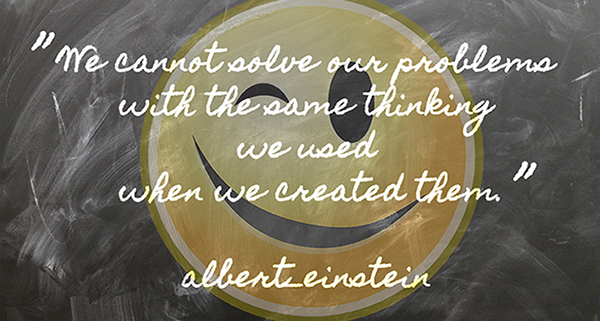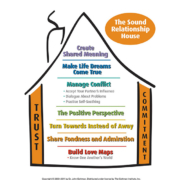Manage Conflict like a Pro
Manage Conflict like a Pro
Don’t you hate it when well-meaning professionals get on their soapbox and start preaching about what couples should do to fight fair or resolve conflict? It all sounds so removed from the real world of nitty-gritty arguments when tempers run high and you definitely don’t feel like practising acts of kindness, or nurturing your partner’s “wounded inner child”? Why should you do the work and bite your tongue when they are so clearly in the wrong? After all, anyone with any logic would see the superiority of your position.
I have been there and experienced exactly that sense of frustration.
I don’t like to be told to do things generally. Especially when the person has little credibility and there seems to be no evidence for it. That is why it was such a joy for me to train in Gottman Method Couples Therapy. Now I have recommendations based on more than 40 years of longitudinal data with a cross-section of couples from newlyweds to retirees and the LGBT community. Having been trained in the scientist-practitioner method, I pay much more attention to these findings than to vague recommendations to bring flowers, have more sex, or plan romantic dinners!
The most important discovery of the research conducted by John Gottman was that couples divided into two very distinct groups. He named them the Masters and the Disasters of Relationships. The Masters remained together and continued to like each other, enjoying each other’s company. The Disasters either divorced or remained together, unhappily, ever after.
The biggest difference between the Masters and Disasters was how they managed conflict. In the laboratory setting, they were videoed having a 10-minute conflict discussion. On the basis of that 10-minute segment, John Gottman could predict with greater than 90% accuracy which couples would divorce and which would stay together.
The Masters were gentle and considerate in the way they discussed areas of disagreement. They used the skills in the middle of the Sound Relationship House to work things through and to bring up issues in a non-blaming way. They listened to each other’s complaints without escalating the argument and were open to accepting influence from each other. They knew how to compromise.
These skills can be learnt. The focus for this week is on how to bring topics up gently so that your partner can actually hear what you are saying and be more willing to make changes in his/her behaviour. The Gottman term for this is the Softened Start Up. Using a Softened Start Up in the first 3 minutes of a discussion will determine how well that discussion goes, whether it will it be positive or not. There is good reason to learn from the Masters and use this skill.
In order for this technique to work you need to be clear about what you want to achieve. Do you want to resolve the conflict or simply attack to let your partner know how mightily pissed off you are?
It is very easy and remarkably unproductive to go into attack mode saying:
“I am so fed up with you being such a lazy good for nothing. You are so selfish and never help me do anything. You never change. You are just like your father ……” and so on and so on.
We all know the likely outcome of such an approach.
Instead, let us assume you want to resolve the conflict and stay friends with your partner. The Softened Start Up approach is to say something like:
“Sweetheart, you know we are getting on really well. I am so glad we are together but we seem to have a bit of a problem with sharing the evening jobs. I must admit I am starting to feel a bit annoyed with the way you have watched TV 6 nights out of 7 last week and left me to clean up the kitchen. That makes extra work for me and it doesn’t feel fair. I would really appreciate it if you could help me tidy up.”
Long-winded? Yes. Artificial? At first. Effective? Most probably, unless there are deeper issues.
The formula consists of the following 5 steps:
- Term of endearment, gentle stroking or affirmation.
- Statement of your feeling (hurt, upset, disappointed etc).
- Description of the specific behaviour which is upsetting.
- The impact that behaviour has on you.
- Request for what you want to make it better.
These steps take practice and may feel phoney or unnatural at first. And I highly recommend writing out what you want to say before delivering it to your partner.
When I teach clients this skill they have different reactions. Some resist because it feels weak to ask so politely. Many of my male clients and some feminists think it is wrong to appear so wimpy. One complained that he had to be super-polite at work, when he got home he expected to be accepted for who he was, warts and all! He did not feel it was authentic to do it this way. Fortunately for his relationship, he was prepared to give it a go and was rewarded by a much happier partner.
Why not play with writing and even sharing your own Softened Start Ups about a particular problem in your relationship? Start with smaller issues to develop the skills before moving on to the more serious ones. If you run into difficulties or are convinced your problems are way too entrenched for this approach, call me.
Best wishes
Robyn Blake-Mortimer
Call 0423 617 735 to schedule your free 15-minute telephone consultation about how I could help you and your relationship.









